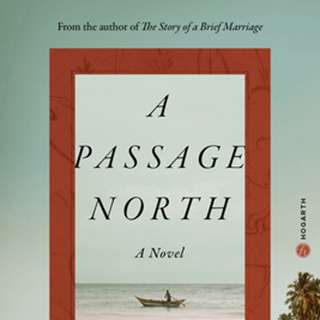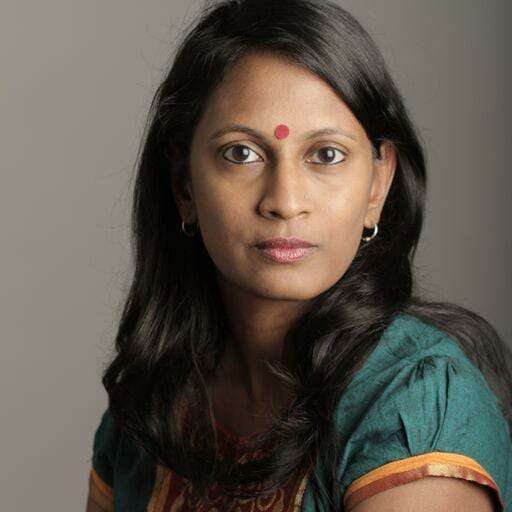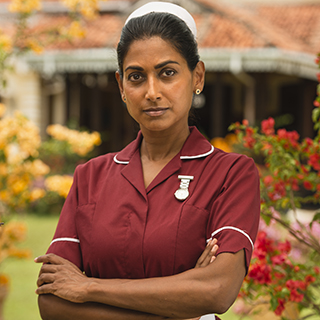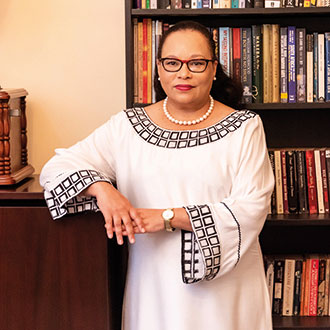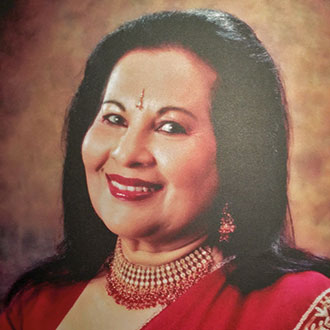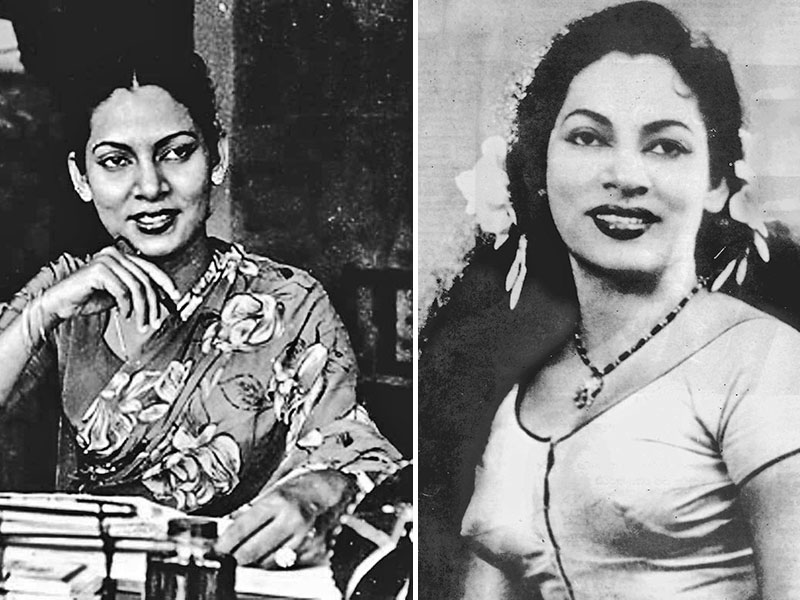
Compiled by Tina Edward Gunawardhana
Her glamorous life was brought to a tragic end in a car accident near St Mary’s church in Thudella on the night of September 25th 1978. Her death heralded the end of an era of the Glamour Queen of the Sinhala Screen. Despite being felled in the prime of her life 40 years ago, the memory of Sri Lanka’s most famous actress, singing sensation and style icon Rukmani Devi lives on
Rukmani Devi was born as Daisy Rassamma Daniels on January 15, 1923, in Ramboda, Nuwara Eliya, to the parents of Colombo Chetty Christians as the second daughter in a family of six. Although she was born in Nuwara-Eliya, she moved to Dematagoda where she attended St Mathew’s School in 1933. It is said that initially Rukmani did not like singing and dancing but gradually developed an aptitude for singing. She first started by singing nursery rhymes like Twinkle Twinkle Little Star before being drawn to the old gramophone at her home.
Having identified her innate talent for singing Rukmani’s father encouraged her to sing and under his tutelage she blossomed. At the age of eight, she began singing Christmas carols and played a role in the popular drama ‘The Shoemaker’s Wife’. At the age of 12 she gave a remarkable performance as the lead female role of ‘Sita’ in ‘Ramayanaya’ produced by Walter Abeysinghe in 1935. Since her performance was highly appreciated by the packed audience, well known dramatist Dick Dias selected Rukmani to perform in Janakiharanaya and Mayawathi.
In an era where women were expected to stay cloistered away from public view, it was Rukmani’s father who encouraged her to take to the stage which was not even considered a proper profession, especially for a well brought up girl. The mid 1930’s was an era when men ruled the stage and even the female characters were played by men. It was in the 1940’s that actresses were given the chance to tread the boards and that was a venture spearheaded by Rukmani Devi herself.
After her performance in Sirisangabo, Rukmani’s father fell ill and Rukmani was forced to give up her academic career and continued acting as a means of generating income to keep the home fires burning. At this time her father intervened and suggested she use the name of Rukmani Devi which she did. Not being fluent in Sinhala, Rukmani overcame this barrier by writing the Sinhala words in English which she memorized. At this stage in her life, she had met Sebert Dias the father of Chitrasena who took Rukmani under his wing and trained her for the starring role in Romeo and Juliet.
In the early 1940s, she joined the Minerva Dramatic Club on a permanent basis. She played the lead role in every drama produced by the Minerva Dramatic Club. On the introduction of cinematic industry to Sri Lanka, she was privileged to feature her skills on the screen in B.A.W. Jayamanne’s ‘Kadawunu Poronduwa’, the first Sinhala film ever screened in the country.
During the course of her career she met Eddie Jayamanne who won her heart. Their union met with much opposition from her parents but never the less love won and the couple married on the day after Valentine’s day in 1943. Eddie played a pivotal role in Rukmani’s career after their marriage. Eddie Jayamanne was also a ‘name’ in the film world and after joining forces they acted together in 16 films. Rukmani Devi returned to the stage again in 1960, acting in the lead female role in ‘Malyahanawa’. Since then she continued to perform in ‘Vessantara’ followed by ‘Othello’, ‘Ves Muhunu’, ‘Angulimala’ and ‘Allapu Kamaraya’.
During her career Rukmani Devi had played the lead role in a total of 84 films while acting in a total of 98 films. She was also known as the nightingale of Sri Lanka and mesmerized millions with her mellifluous voice.
At the time of the initial stages of cinema in India and Sri Lanka, it was the practice for the main actress to perform playback singing behind her own character on the screen. Rukmani Devi holds the distinction of being the only actress who made a record-breaking achievement in playback singing for her own character in all these films.
Her acting was not only confined to Sinhala and English audiences for she became the first
Sri Lankan artiste to appear on the Tamil screen with her portrayal in the films ‘Kathiruppean Unnakaga’
in 1977 and ‘Nan Ungal Tholan’ in 1978. Accredited with versatility her performance in ‘He Comes From Jaffna’, a drama produced for the benefit of the English speaking audience, was highly acclaimed. These performances confirmed what a gifted actress she was with her ability to deliver expression of dialogue in Sinhala, Tamil and English.
The inclusion of her photograph on the front page of the recognized Indian Film Fare magazine and being featured in the “My Likes and Dislikes” column of the same magazine in 1958 helped to elevate her star status to the next stratosphere. Locally, in a poll conducted by the Dinamina newspaper in 1955 Rukmani Devi was elected the Most Popular Actress with a record majority of 13,000 votes, over the first runner-up. The Best Actress Award for her role Malini in the famous film ‘Kela Handa’ was awarded to her at the ‘Deepasika Film Festival’ in 1956. In 1966, the ‘Janatha Sammana’ was presented to her for the most popular Female Playback Singer at the Sarasaviya Film Festival. She was felicitated with the ‘Deeparani’ Special Award at the ‘Deepasika’ Film Festival in 1972, in recognition of her skilled character on stage and screen. In 1996, she was posthumously awarded with ‘Sarasavi Sammana’ for her immeasurable contribution made in her capacity as the Silver Screen Idol of the era.
Although performance was her life’s passion, she had an amazing taste in clothes. Her wardrobe staples were saris. Her look was glamour and her appearance was polished. As an actress and songstress she was photographed widely and her style was emulated by many Sri Lankans in an era when stars were few and far between. Despite the passage of time since her untimely death the allure of Rukmani Devi’s cinematic glamour still reigns supreme.
This article first appeared in the Hi!! Best Dressed List Magazine 2019

